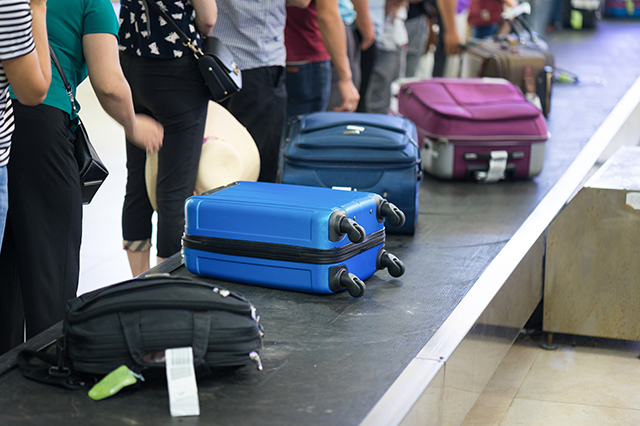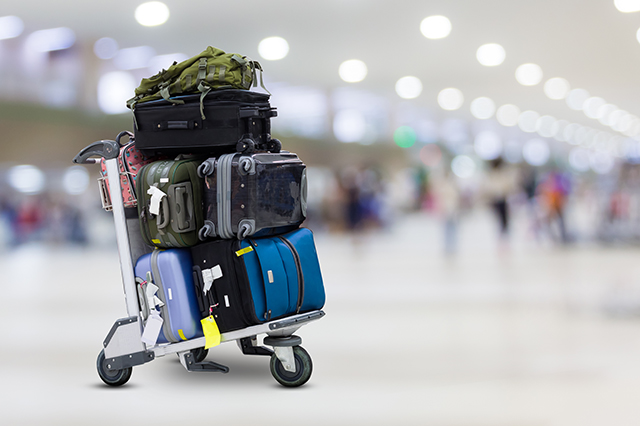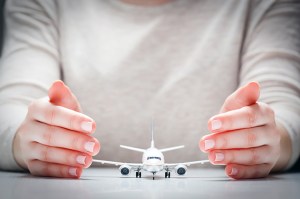The bad news: Your luggage is delayed, lost or battered beyond recognition. What can make you feel better? Having travel insurance.
Comprehensive insurance for a trip — which can include protection from unexpected expenses incurred by issues such as flight delays, trip interruptions, and medical treatment—provides more than just “peace of mind” when the things that can go wrong do go wrong. It provides financial protection.
Baggage insurance basics
What is baggage insurance, exactly, and why would you need it if the airline already covers lost and stolen luggage?
According to the experts at AAA travel insurance partner Allianz, “’Baggage insurance’ is a general term for travel insurance benefits that can protect your bags and possessions while traveling.” It’s often part of a more comprehensive travel insurance package, but not always; be sure to check when you’re comparing insurers and policies.
Airlines can and do cover luggage that’s delayed, lost or damaged, but (obviously) aren’t responsible for luggage troubles that may occur during your trip — when you’re backpacking in Peru or traveling via rail on a city-by-city tour of Italy. Coverage throughout your journey is one of the key benefits in having a travel insurance package with baggage benefits.
What airlines are responsible for
Getting baggage benefits in your travel insurance policy is a good idea even if you’re planning a flight in/flight out holiday with a single destination, offering more robust protection than you might get from the airline. Here’s the low-down of what airlines are responsible for, straight from the U.S. Department of Transportation:
- If a passenger’s bag is delayed, airlines will pay reasonable expenses the passenger incurs while he or she waits for the delayed bag.
- If a passenger’s bag is damaged because of rough handling, airlines will pay for the repairs or negotiate a settlement to pay the passenger the depreciated value.
- If a passenger’s bag is lost, airlines will reimburse the passenger the depreciated value of his or her lost belongings.
The key phrase above is “reasonable expenses.” Elsewhere on the site, the DOT notes, “You and the airline may have different ideas of what’s reasonable, however, and the amount it will pay is subject to negotiation.”
Other items to keep in mind:
- The airline liability ceiling, currently at $3,500 adjusted for inflation every two years. Liability for international flights, about $1,675 at the time of this being written, is actually set by the Montreal Convention using a “currency surrogate that floats daily.” (You’d have to check the IMF to check current values.)
- These are the maximums. If the value of your stuff (depreciated) is less than the liability limit, you’ll get the lesser amount.
- As a small consolation, if your luggage is actually lost (rather than delayed), your checked baggage fee will be refunded. (This may seem like a “well, of course!” kind of thing, but this is a new rule.)

Bolster your protection with baggage insurance for a trip
The protections airlines provide have two things going for them: They’re free (or rather, included in the price of the ticket) and their reimbursements may be sufficient for some passengers.
But it’s still a good idea to bolster that coverage by purchasing travel insurance that includes luggage benefits. Here’s why:
- It covers your entire trip, not just the parts that take place at the airport.
- Airlines offer depreciated values for items, not what it would cost to replace them. Travel insurance protection could provide reimbursement for replacement of items lost or stolen.
- While travel insurance companies do have exclusions, airlines have long lists of items they will not cover — and you may not care to engage in a lengthy process of “negotiation” with them if you disagree about what expenses are “reasonable.”
- Keep in mind that even travel insurance policies have their limits and that big-ticket items, like expensive jewelry and electronics, may be better protected under your homeowner’s insurance. As always when researching policies, know what you need covered and read the fine print to determine whether the coverage will be sufficient.
Do you have any personal stories about delayed, lost or otherwise trouble-plagued luggage? Did having travel insurance help you out? (Or did it make you wish you’d gotten the travel insurance?) Share any tips or insights you may have in the comments section below.
Your AAA travel advisor can help you choose a travel insurance policy that’s right for you. Learn more.

















